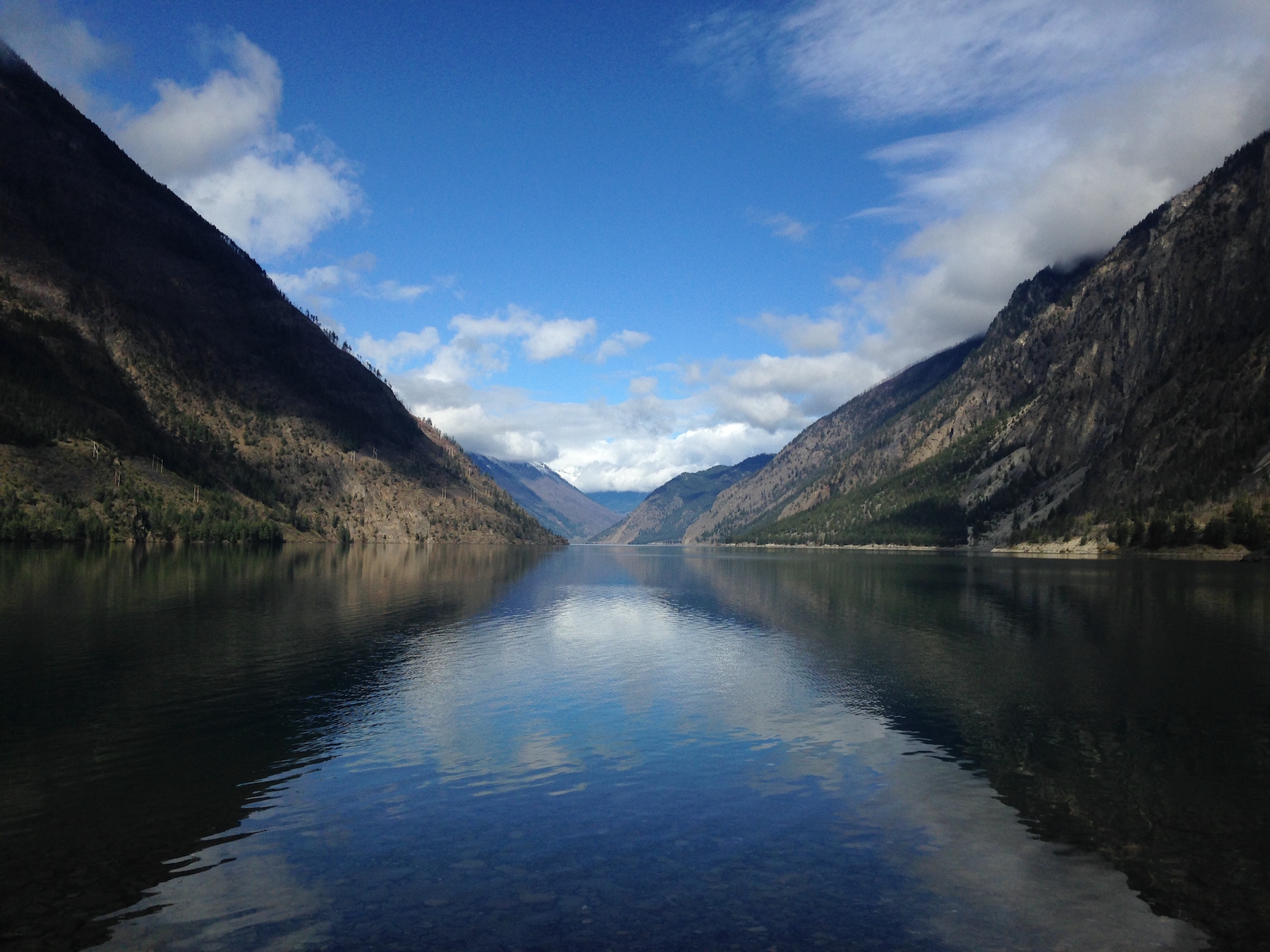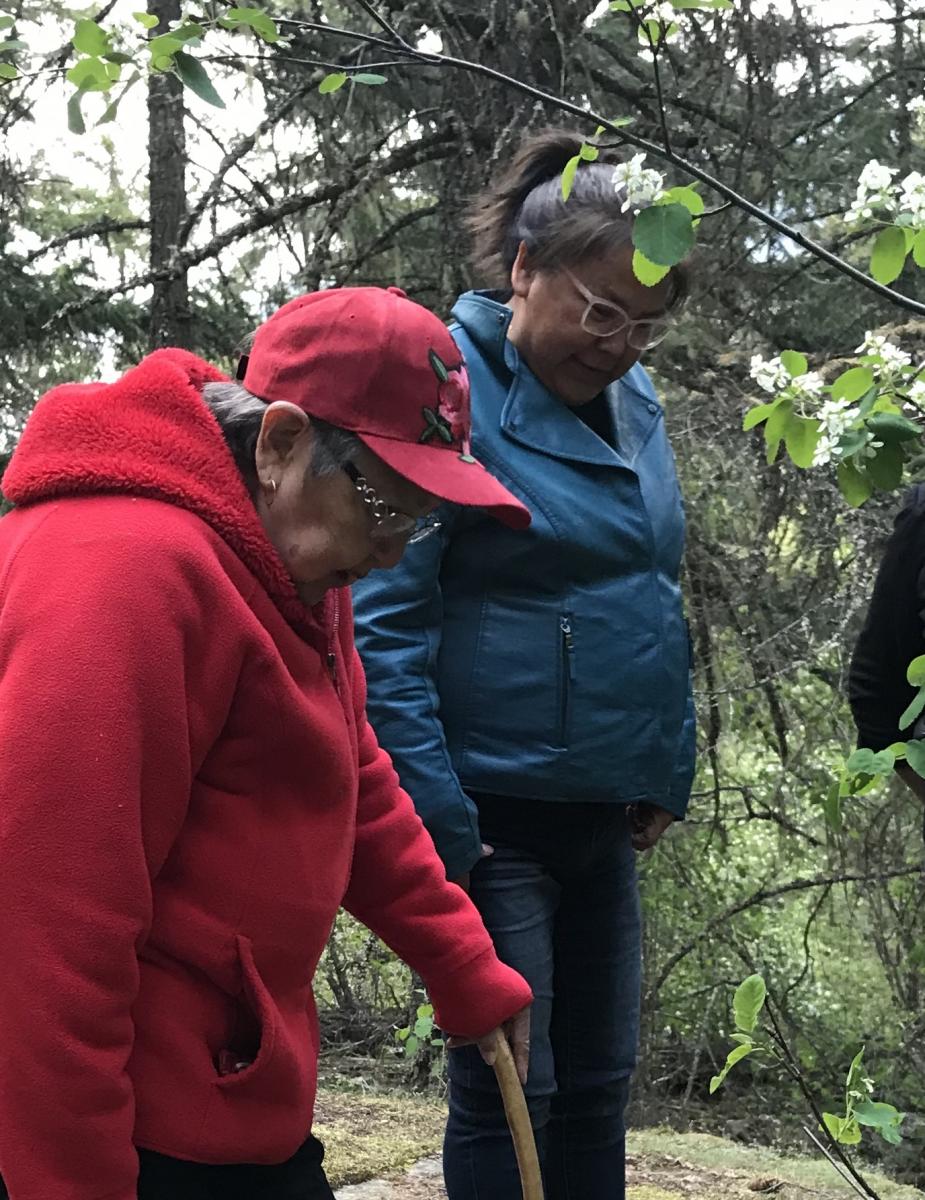
Hello, my name is Helen Copeland. I am a descendent of the P’egp’ig’lha (frog) people, from T’ít’q’et community, one of eleven Indigenous communities that make up St’át’imc Nation. T’ít’q’et is approximately 250 kilometres northeast of Vancouver, BC.
I started working for West Coast Environmental Law in January 2020 as the RELAW Program Manager, and I wanted to share a bit about the journey that led me to take this role.
In 1983, I made the decision to begin my decolonization process. I attended public school and I was told to take secretarial courses so that I could aspire to become a secretary because I would not be able to further my education beyond high school. The Monday after I graduated high school I started working for a law firm as a secretary. It was not my “cup of tea.” I worked for an Indian Band office and then moved to a tribal council office.
In 1987 I decided it was time for me to further my education. I attended Fraser Valley College and then transferred to University of Lethbridge to complete my Bachelor of Arts degree. During this time, I also focused on personal training by taking various personal growth workshops and sessions. I look back at this time of my life as the beginning of my awakening as an úcwalmicw (St’át’imc person).
 The more I learned about Indigenous peoples of Canada, the clearer I became on how I became who I am. I was able to look back on my childhood and appreciate the way I was raised. My mother taught us by telling stories and playing the different characters. It was fun to learn and it was awesome to do things as a family. It did not feel like a chore or work. It was a family activity. When it was time to pick berries, there was no lecture or lesson plan, instead, she would talk to us as if she was a berry. It seemed like play – but more importantly, she was laying the foundation of very important values of respecting all things and ensuring that we knew our responsibility to the berries.
The more I learned about Indigenous peoples of Canada, the clearer I became on how I became who I am. I was able to look back on my childhood and appreciate the way I was raised. My mother taught us by telling stories and playing the different characters. It was fun to learn and it was awesome to do things as a family. It did not feel like a chore or work. It was a family activity. When it was time to pick berries, there was no lecture or lesson plan, instead, she would talk to us as if she was a berry. It seemed like play – but more importantly, she was laying the foundation of very important values of respecting all things and ensuring that we knew our responsibility to the berries.
In 1993, I had my first work experience with decolonization and Indigenous knowledge. My community hired me to explore options of how more people will become involved in our community. After two years of exploring it was decided as a community to go back to the “family head” system of doing things. The P’egp’ig’lha Council, Elder’s Council and Youth Council was implemented in 2002 and the P’egp’ig’lha Constitution was ratified in 2007. Currently, I sit on the P’egp’ig’lha Council representing the Bob / Copeland family.
Everything I learned I taught my daughter, Bobbilee. I taught her what I learned: gardening, picking berries, fishing, and hunting. Many teachings were more like an awakening to me. I did not know how much of the values and beliefs were instilled in me until I learned about being ucwalmicw.
In 2016-17, I worked for St’át’imc Chiefs Council as a Researcher/Facilitator for the St’át’imc Revitalizing Indigenous Law for Land, Air and Water (RELAW) project. I believe that the RELAW project provided time and space for úcwalmicw (St’át’imc people) to learn from each other about how the teachings of the stories guided us.
Talking about the teachings of our traditional stories showed us where our values and beliefs came from. It also provided healing from colonialism and oppression. The more we shared and learned from each other, the clearer we became on “the right way to live.” It is time to embrace our responsibility – our legal responsibility to the land, water, air, animals, birds, and fish.
For me, joining the RELAW team at West Coast Environmental Law is another way of living this responsibility, as well as taking the next step of supporting others in their journey.